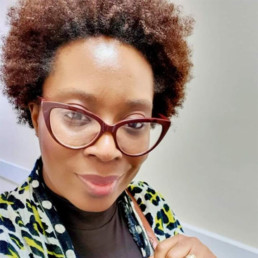
Written by Bianca Chappell
Bianca Chappell is a Mental Health Strategic Lead, Cognitive Behavioural Coach and Mental Health First Aider.
When things go awry, we like to know what to do and how to do it, so that it can be sorted out – it’s a totally natural response. With some illnesses, the treatment is simple and we are able to move on. Unfortunately, mental ill health isn’t so straightforward, and to make it even more frustrating, recovery is hardly ever linear either – we don’t experience feeling better in a nice, neat, straight line.
Life is mostly unpredictable and there’s only so much that we can control. Our mental health can take a knock-back from the things which go on internally for us, but also the things which happen externally.
We may have been going along all hunky-dory and then something happens to cause one of those sinking-stomach rough patches that we work so hard to avoid. Similarly, we might have had a long murky spell and then find that something happens to give us a lift.
Our mental health isn’t stationary, it’s transient and a counter reaction of so many individual factors. It’s difficult to always know what’s helping and what’s not, to be able to make changes to rebalance and create new habits to feel settled again.
It’s hard work and sometimes we’ll put time and effort into something that isn’t quite right for us which can be demotivating and use up energy which is in limited supply. The very nature of mental ill health is that it depletes our energy resources, so we’re always having to weigh-up where we are, with where we’d like to be, but to also be mindful that we’re not using up all of our future energy supplies. It’s a never-ending puzzle.
Life in itself is full of ups and downs. When we add mental ill health to the mix, those lows can feel extraordinarily painful and crushing. We’re working so hard to move forwards, towards good health, and those setbacks can really dent our hope and confidence. We might find ourselves in a spiral of ‘well I’ve tried so hard and things are still going backwards so everything is hopeless and I’ll never get better so there’s no point in trying any more’. It can be very easy to get into this spiral and it is very hard to get out of it again. Hitting a blip doesn’t mean that everything is hopeless and it certainly doesn’t mean that all of our hard work is for nothing. When it all feels a little much, take some time out to hunker down and up the self-care. It can feel counterintuitive but energy, hope and motivation aren’t in limitless supply, we often need to stop, to take stock and top-up.
On the face of it, it often seems as though there’s no logical reason for our mental health deteriorating. But there’s usually something, however small it might seem, which has affected how we feel.
It can take a bit of work to figure out the sorts of things that might be contributing to our mental health dipping; habits, boundaries, obstacles, lack of support, triggers etc. We might need some help with identifying what our triggers are and in learning how to handle them. One of the things which can help is to keep a mood diary – this helps us to see patterns but also gives us an in-time reflection on what was what for us at any given time.
The more knowledgeable we are about our stressors, the more equipped we are to make decisions which are right for us and our mental health.
When our mood dips again, or we use behaviours we haven’t used in a while, it’s easy to feel hopeless, useless, and frustrated. We might find that we feel like nothing has changed, as if we’ve not got anywhere, and nothing is any different from last year, or the year before that, or the year before that.
Relapsing doesn’t erase our recovery. All the things we’ve achieved – keeping our mood stable for a while, going for a period of time without using behaviours, or something else – are still achievements.
When we look back, it’s the grotty and the great that we see – but the in-between stuff is just as valuable; there’s important knowledge we’ve gained and lessons we’ve learned which help us to be more informed going forward. Every time we go through a rough patch, we can take an insight from it to aid our recovery. Even though it might not feel like it, we will be in a different place from the time(s) before. We have more experiences and more skills than we’ve had in the past. We never go right back to square one because we’re approaching each rough patch from a slightly different place.
Mental ill health isn’t something we’d choose and it’s definitely not a stick with which to beat ourselves up about. We didn’t choose to be mentally ill in the same way that we don’t choose to catch a cold. When we punish ourselves for how we feel, it makes us feel worse and plays into the hands of the illness we so want to be free from.
Not being okay can be hard to cope with, we so desperately want to be okay, but it is okay not to be okay. Nobody can be okay all of the time and recovery will always be full of ups and downs as we learn new things. It’s when we own-up to our not-okay-ness that we find ourselves in a place more accepting of help, more likely to ask for help, and more open to changes, self-care and being gentler to ourselves.

